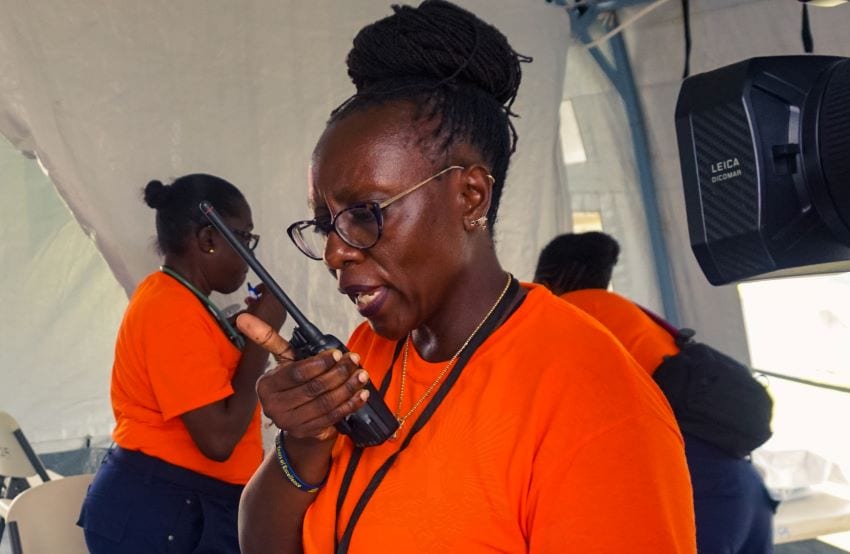
Continuous training for doctors and nurses in the Barbados Defence Force (BDF) Field Medical Facility (FMF) has been highlighted as one of the critical factors that needs to be in place for its continued success.
Emergency Room Specialist in Barbados, Dr. Hilary Moore, pointed this out, after acting in the role of Clinical Director in charge of the FMF on day one of the facility’s participation during Exercise Tradewinds 2019 (EX TW19) in St. Vincent and the Grenadines on Monday.
“A Field Medical Facility involves a lot of training…. We have gone into our special niches with time and with years, but we need to understand this encompasses many different things,” she said.
Using herself as an example, Dr. Moore said she did not generally manage matters related to hypertension, but in a Field Medical Facility setting, persons would likely present with uncontrolled blood pressure.
“So, we all need to know what are the basic things to manage hypertension,” she pointed out.
Dr. Moore added that persons in the medical area also needed to be able to offer some form of psychological support when treating patients when deploying to disaster areas to deal with their emotional and mental needs.
“Imagine somebody who can’t find their family; they can’t find their friends; they don’t know what happened; they could have been in an area where their roof dropped in on them; it is traumatic.
“So, it is important that everybody in the medical area is able to do some kind of psychological support also, because even if you have psychologists they will not be enough for the psychological component of any disaster,” she said.
However, that training requirement also extends to the area of equipment. Dr. Moore said that they wanted to move towards using hand-held ultra sound machines in the Type One Facility, or portable ultra sound machines, which are used for obstetrics, and general purposes.
She explained this might become necessary, as patients in the aftermath of a disaster may suffer from malnutrition, having not eaten or drunk anything for days.
“So, even if you want to set up a line, you would need to be able to see them. Some of us are already trained [in what to do] and we hope to train more, so we could have IV (intravenous) access, so we can replenish fluids in people who need it urgently,” the Emergency Room Specialist noted.
